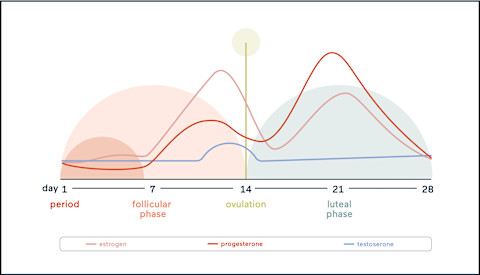Focus on getting through today — Resist constructing a narrative that the turbulent present will define the future.
There was a time during my job search when I experienced a pile up of professional rejections, so much so, that I curled up in the living room and wept. Through my tears, I had a moment of recognition of the universality of suffering, and somehow that burst the pity bubble. I realized I had to redouble my efforts and try harder. And with that, I pitched an article to an editor about how to triumph over rejection. The editor promptly said yes, the article ended up in Forbes, and with that, my fortunes began to change.
Resilience has been described as the ability to withstand adversity and bounce back from difficult life events. Times are not easy now. How do we develop greater resilience to withstand the challenges that keep being thrown at us? In this interview series, we are talking to mental health experts, authors, resilience experts, coaches, and business leaders who can talk about how we can develop greater resilience to improve our lives.
As a part of this series, I had the pleasure of interviewing Wendy Braitman.
Wendy Braitman, PCC is a Career Coach guiding high-performing professionals in their leadership development and career transitions. Wendy came to coaching after 20 years in the film industry, where she launched a nationally-recognized media organization that helped filmmakers and financiers connect. She was an Adjunct Faculty Member at IPEC, training coaches at one of the foremost coaching institutes, and has been interviewed on The Today Show and CNBC, with essays on career development published in Forbes and The Huffington Post.
Thank you so much for joining us! Our readers would love to get to know you a bit better. Can you tell us a bit about your backstory?
For 20 years, I worked in the film industry, as a producer and founding director of a media organization that helped filmmakers and financiers connect. And that led to what I thought was the role of my career — a spot leading a project for Discovery Channel and The American Film Institute. But things took an unexpected turn when I lost my job after the role was relocated across the country. It was a jolting experience, and I was angry and confused by the challenges of getting hired. I was in my fifties then, and I’m sure age was a factor. It was a daily effort to maintain a sense of dignity amid the rejection. But this challenging experience led to one great thing. It inspired me to become a Career Coach, wanting others to benefit from what I had to learn the hard way.
Can you share with us the most interesting story from your career? Can you tell us what lessons or ‘take aways’ you learned from that?
The most pivotal parts of my career have emerged from understanding a need in the larger marketplace that grew out of a need that started with me. The first, was as a producer, when I was able to secure financing for a film at a European co-production market in The Netherlands. I was so impressed with the forum, that on the long plane ride home to California, I decided to try and create something similar in the United States. Nine months, later, IFFCON (International Film Financing Conference) was born, which helped filmmakers and financiers connect, and went on to become a model for other industry development gatherings across the country.
What do you think makes your company stand out? Can you share a story?
I became a career coach because of wanting to offer the guidance and hope that I longed for (but never had), during my own career transition. I know, first-hand, the challenges and emotional impact of a job loss, and still remember the mistakes I made along the way. And that first-hand experience is now deepened by years of guiding others successfully to make their transition. Last year, I had the privilege of talking about my career change story on The Today Show, when I was interviewed by Maria Shriver for a segment about women who’ve successfully changed careers after 50.
None of us are able to achieve success without some help along the way. Is there a particular person who you are grateful towards who helped get you to where you are? Can you share a story?
My mom grew up in an era when women didn’t have the professional opportunities we take for granted today. Like many women of her generation, she wasn’t able to get a college degree, and that greatly limited her career options. But my mother’s immense talent was evident in everything she tackled. She instilled in me a sense that women deserved to be in high places, even if she couldn’t get there herself. She made me believe that anything is possible. When I was 10, with my Mom’s can-do spirit in mind, I wrote to the President of the United States, inviting him to my birthday party. To this day, one of my treasured artifacts is a framed note from the White House, with the President wishing me a very happy Birthday (though sending his regrets). And that action become a hallmark of my career — the fearlessness and ability to reach out to people in power and inspire them to respond. That’s what helped me launch a nationally-renowned media organization, and build a coaching business from scratch. It all started with Mom.
Ok thank you for all that. Now let’s shift to the main focus of this interview. We would like to explore and flesh out the trait of resilience. How would you define resilience?
Being able to find the strength to endure disappointment, setbacks, rejection, misfortune, and still believe the present doesn’t need to define the future.
What do you believe are the characteristics or traits of resilient people?
Perseverance, stamina, and most importantly, hope
Courage is often likened to resilience. In your opinion how is courage both similar and different to resilience?
It’s possible to have courage without resilience, but not possible to have resilience without courage. And how I define courage in this context is the ability to believe that something better is possible, and to turn that belief into action, even when all the evidence points to the opposite. Hope takes courage.
When you think of resilience, which person comes to mind? Can you explain why you chose that person?
When I lost my job and found myself wandering in what I call the “career wilderness,” I started volunteering as a community organizer. I’d never done this before and needed a lot of training from the professionals in the field. One of my mentors was Alma Morales, who is now a political organizer for SEIU. We were working on an issue related to immigrant rights, and in the process, we interacted with the Mayor’s Office, the Los Angeles Police Department, state and national representatives. Alma was always a steady and inspiring presence, despite all the setbacks along the way. She never gave up hope, and kept our group moving forward into action and ultimate victory, where we were able to change policy on a local level, and eventually in the state of California, a change that positively impacted millions of hard-working immigrants. As the granddaughter of immigrants, it was an honor to stand together with Alma on the steps of City Hall when Governor Brown signed the bill into law.
Has there ever been a time that someone told you something was impossible, but you did it anyway? Can you share the story with us?
As I started to consider the idea of becoming a career coach, it was a weighty decision. I’d need to invest both time and money in going back to school to get trained. And I’d have to be able to build a new business in a field I knew nothing about. I confided in a close friend before making the choice. She thought it sounded too risky, and advised against it. In the end, I decided to trust my instincts. Now years later, as a successful career coach, I’m doing work that I love, with the daily opportunity of impacting people’s lives for the better, and even got to talk about my journey on national TV.
Did you have a time in your life where you had one of your greatest setbacks, but you bounced back from it stronger than ever? Can you share that story with us?
My greatest setback was the one I described earlier, about losing my job as a senior executive in the film industry, which forced me to unexpectedly look for work for the first time in 20 years. Suddenly, without a respected place in my professional community, I felt shame and a loss of identity. I wondered, “who am I without work?” And because of those feelings, I withdrew at exactly the time I needed to be connecting with others. Through a long, circuitous journey, I eventually found my way to becoming a career coach. And now, I guide others to stay connected, and honor their intrinsic value, regardless of professional status.
How have you cultivated resilience throughout your life? Did you have any experiences growing up that have contributed to building your resiliency? Can you share a story?
At the most harrowing moments of my life, it has felt like being at a crossroad. Down one path was surrender and defeat, which in times of extreme stress seemed like the path of least resistance. The other path took a lot more effort, more action, starting with finding the strength to take one step forward, then another, and then another. My parents were excellent role models. When my mother was dying, my brother and I worried about our Dad. He had been such a devoted husband, whose life revolved around his wife and family. How would he survive the woman who was the center of everything to him? But somehow, he found the grace and strength to prevail, one step at a time and find happiness again. He was my hero and inspiration.
Resilience is like a muscle that can be strengthened. In your opinion, what are 5 steps that someone can take to become more resilient? Please share a story or an example for each.
My take on 5 ways to thrive during turbulent times:
1. Focus on getting through today
Resist constructing a narrative that the turbulent present will define the future.
There was a time during my job search when I experienced a pile up of professional rejections, so much so, that I curled up in the living room and wept. Through my tears, I had a moment of recognition of the universality of suffering, and somehow that burst the pity bubble. I realized I had to redouble my efforts and try harder. And with that, I pitched an article to an editor about how to triumph over rejection. The editor promptly said yes, the article ended up in Forbes, and with that, my fortunes began to change.
2. Practice gratitude
Even when you have to fake it, make a note of the things that are going right every day
Years ago, I randomly heard about an idea from Oprah of keeping a gratitude journal to recount 5 good things that happened each day. I thought I’d give it a try. Through the decades, I’ve evolved my method. I don’t keep a list in a journal — I say them quietly right before every evening meal, sort of my version of grace. Gratitude is game changing. No matter how rough the day, just taking the time to remember the good things has the potential to alter your state of mind and physical well being.
3. Nurture offline connection
With humans and pets
During turbulent times, tactile support can make the difference between despair and hope. This has been particularly tough during the pandemic, and without the nightly hugs with my dog, I’m not sure how I would’ve made it. Find a way to connect away from the screen.
4. Lean into pleasure
Go for a walk, eat ice cream, binge-watch favorite TV show
There are moments when powering your way through turbulence is not going to work. Instead, the antidote is having some fun, whether that’s watching a guilty-pleasure movie in the middle of the day, enjoying a hot chocolate with whipped cream, or taking a walk in the woods with friends.
5. Take a worry-day off
Ritualize a break from worrying and have the audacity of hope
Once a week, starting on Friday evening, I take a worry day off. I got the idea more than 20 years ago from a Rabbi who talked about this in the context of the Jewish sabbath. He suggested to our group that we put aside the things we were worrying about for the next 24 hours, reassuring us that we could always pick up where we left off the following day. But something transformational happens when you give yourself a break from worry and problem solving, and live in a spirit of hope. It’s a reboot.
You are a person of great influence. If you could inspire a movement that would bring the most amount of good to the most amount of people, what would that be? You never know what your idea can trigger. 🙂
The pandemic has been a vivid example about the importance of community, and how interconnected we all are. Our lives have literally depended on each other. I realize that the U.S. is a big, complicated country. But I’m inspired by other nations that seem to take their civic responsibilities seriously, and recognize how their actions can ripple out for the public good (or not). I’d like to see more of that spirit here in the U.S.
We are blessed that some very prominent leaders read this column. Is there a person in the world, or in the US with whom you would love to have a private breakfast or lunch with, and why? He or she might just see this, especially if we tag them 🙂
Anita Hill. I still remember the courage and excruciating honesty of her testimony in front of the Senate Judiciary Committee, and the heartbreak that followed when her story was dismissed. Anita Hill never meant to be a public figure, but to this day, she continues to inspire and educate us about the insidiousness of sexual harassment in the workplace. She embodies resilience and stands out as a beacon of truth.
How can our readers further follow your work online?
This was very inspiring. Thank you so much for joining us!








